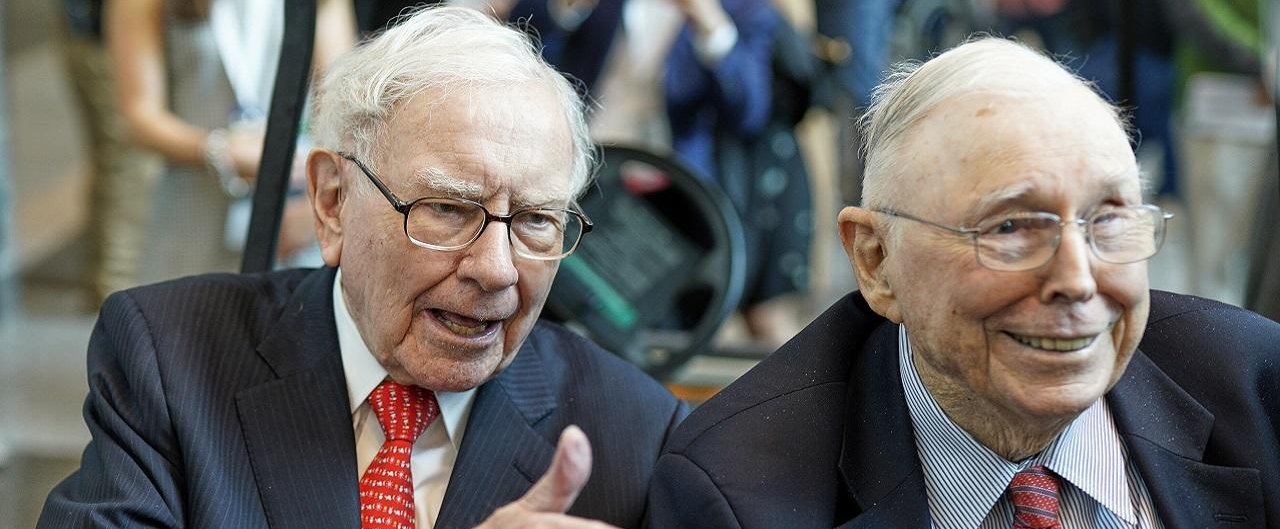Comments
- No comments found

The legendary investor Warren Buffett each year publishes a letter to the shareholders of Berkshire Hathaway, both reporting returns from the previous year and also offering reflections on past investment decisions and philosophies.
In this year’s just-published letter, Buffett quotes some advice from his long-time partner Charlie Munger. Buffett writes:
Charlie and I think pretty much alike. But what it takes me a page to explain, he sums up in a sentence. His version, moreover, is always more clearly reasoned and also more artfully – some might add bluntly – stated. Here are a few of his thoughts, many lifted from a very recent podcast:
The world is full of foolish gamblers, and they will not do as well as the patient investor.
If you don’t see the world the way it is, it’s like judging something through a distorted lens.
All I want to know is where I’m going to die, so I’ll never go there. And a related thought: Early on, write your desired obituary – and then behave accordingly.
If you don’t care whether you are rational or not, you won’t work on it. Then you will stay
irrational and get lousy results.
Patience can be learned. Having a long attention span and the ability to concentrate on one thing for a long time is a huge advantage.
You can learn a lot from dead people. Read of the deceased you admire and detest.
Don’t bail away in a sinking boat if you can swim to one that is seaworthy.
A great company keeps working after you are not; a mediocre company won’t do that.
Warren and I don’t focus on the froth of the market. We seek out good long-term
investments and stubbornly hold them for a long time.
Ben Graham said, “Day to day, the stock market is a voting machine; in the long term it’s
a weighing machine.” If you keep making something more valuable, then some wise person is going to notice it and start buying.
There is no such thing as a 100% sure thing when investing. Thus, the use of leverage is
dangerous. A string of wonderful numbers times zero will always equal zero. Don’t count on getting rich twice.
You don’t, however, need to own a lot of things in order to get rich.
You have to keep learning if you want to become a great investor. When the world changes, you must change.
Warren and I hated railroad stocks for decades, but the world changed and finally the country had four huge railroads of vital importance to the American economy. We were slow to recognize the change, but better late than never.
Finally, I will add two short sentences by Charlie that have been his decision-clinchers for decades: “Warren, think more about it. You’re smart and I’m right.”
And so it goes. I never have a phone call with Charlie without learning something. And, while he makes me think, he also makes me laugh.
I will add to Charlie’s list a rule of my own: Find a very smart high-grade partner – preferably slightly older than you – and then listen very carefully to what he says.
Timothy Taylor is an American economist. He is managing editor of the Journal of Economic Perspectives, a quarterly academic journal produced at Macalester College and published by the American Economic Association. Taylor received his Bachelor of Arts degree from Haverford College and a master's degree in economics from Stanford University. At Stanford, he was winner of the award for excellent teaching in a large class (more than 30 students) given by the Associated Students of Stanford University. At Minnesota, he was named a Distinguished Lecturer by the Department of Economics and voted Teacher of the Year by the master's degree students at the Hubert H. Humphrey Institute of Public Affairs. Taylor has been a guest speaker for groups of teachers of high school economics, visiting diplomats from eastern Europe, talk-radio shows, and community groups. From 1989 to 1997, Professor Taylor wrote an economics opinion column for the San Jose Mercury-News. He has published multiple lectures on economics through The Teaching Company. With Rudolph Penner and Isabel Sawhill, he is co-author of Updating America's Social Contract (2000), whose first chapter provided an early radical centrist perspective, "An Agenda for the Radical Middle". Taylor is also the author of The Instant Economist: Everything You Need to Know About How the Economy Works, published by the Penguin Group in 2012. The fourth edition of Taylor's Principles of Economics textbook was published by Textbook Media in 2017.
Leave your comments
Post comment as a guest